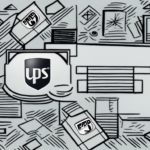Comparing USPS and UPS: Which Delivery Service Is Right for You?
Are you considering shipping a package or receiving a shipment? If so, selecting a reputable delivery service is essential. Two of the most popular options are the United States Postal Service (USPS) and United Parcel Service (UPS). While both offer reliable delivery services, key differences between them can influence which is best suited to your specific needs. This article delves into the distinctions between USPS and UPS, covering aspects such as shipping costs, delivery options, tracking capabilities, customer service, and more. By the end, you'll be equipped to make an informed decision on whether USPS or UPS is the right choice for your next delivery.
Introduction: The Importance of Choosing the Right Delivery Service
When it comes to shipping packages or receiving shipments, the choice of delivery service plays a crucial role. The selected service can affect shipping costs, delivery speed, tracking capabilities, and overall customer satisfaction. Choosing the right delivery service ensures that your package arrives on time, in good condition, and with comprehensive tracking throughout the shipping process.
Customer service quality is a vital factor to consider. A responsive and efficient customer service team can swiftly address any issues or concerns, which is especially important when shipping valuable or fragile items requiring special handling.
Another significant consideration is the delivery service's coverage area. Some services may have limited regional or international reach, potentially restricting your shipping options. It's essential to select a delivery service that aligns with your specific shipping requirements, including international and remote destinations.
Understanding the Differences Between USPS and UPS
USPS and UPS are two of the most prominent delivery services in the United States. While both provide similar core services, several key differences set them apart:
- Ownership and Structure: USPS is a government agency, whereas UPS is a privately-owned company. This fundamental difference influences their service offerings, customer service standards, and operational efficiencies.
- Coverage and Reach: USPS boasts an extensive network, enabling deliveries to remote locations that UPS might not serve.
- Pricing Structure: USPS generally offers more competitive rates for smaller and international packages. In contrast, UPS is renowned for its reliable and expedited services, particularly for larger shipments and business needs.
- Service Offerings: USPS provides services like Certified Mail, Registered Mail, and Priority Mail, ideal for important documents. UPS offers services such as UPS My Choice and UPS Access Point, providing enhanced tracking and flexible pickup options.
These differences can significantly impact your choice depending on your specific shipping needs.
Shipping Costs: Which Service Offers the Best Rates?
Shipping costs are a primary consideration when selecting a delivery service. Here's how USPS and UPS compare:
- USPS: Typically offers lower rates for packages weighing less than 2 pounds. Services like USPS First Class Mail are economical for smaller shipments.
- UPS: While generally more expensive, UPS provides cost-effective solutions for heavier packages and businesses that require frequent shipping due to their scalable pricing models.
Both USPS and UPS offer discounts for specific shipment types, such as military addresses or high-volume business shipments. Additionally, many online retailers partner with these services to provide discounted shipping rates. It's advisable to compare rates and available discounts to determine the most cost-effective option for your needs.
According to the 2023 USPS shipping cost report, USPS remains more affordable for lightweight packages, while UPS offers scalable pricing for bulk and heavy shipments.
Shipping Speed: Which Service Delivers Faster?
Delivery speed is another critical factor:
- UPS: Known for its fast and reliable delivery options, especially for overnight and time-sensitive shipments.
- USPS: Offers competitive shipping times with services like Priority Mail Express, which can rival UPS's expedited options for certain destinations.
The actual speed can vary based on the origin and destination of the package. For domestic shipments within the same state, USPS's extensive local network may facilitate quicker deliveries. Conversely, for international shipments, UPS's global infrastructure often ensures faster transit times.
Data from the USPS shipping speed guidelines and UPS delivery times indicate that both services offer competitive speeds, but the best choice depends on specific delivery requirements.
Tracking Capabilities: Which Service Provides Better Tracking Information?
Effective tracking is essential for monitoring shipments:
- UPS: Provides detailed, real-time tracking updates through their online portal and mobile app. Features include step-by-step status updates and estimated delivery times.
- USPS: Offers basic tracking information for most services, with enhanced tracking available for specific options like Priority Mail and Priority Mail Express.
The comprehensiveness of UPS's tracking system often makes it a preferred choice for businesses and individuals who require meticulous monitoring of their shipments.
For more information, refer to the UPS Tracking Support and the USPS Tracking Resources.
Delivery Options: Which Service Offers More Flexibility?
Flexibility in delivery options can enhance convenience:
- USPS: Provides options like signature confirmation and Hold for Pickup at post offices.
- UPS: Offers extensive flexibility through services like UPS My Choice, allowing customers to reroute packages, change delivery dates, and select UPS Access Point locations for pickup.
UPS's My Choice service is particularly beneficial for those with unpredictable schedules, offering greater control over delivery preferences.
Learn more about UPS My Choice here.
International Shipping: Which Service is Better for Sending Packages Overseas?
When shipping internationally, consider the following:
- USPS: Generally offers more affordable international shipping rates, making it suitable for sending smaller and less urgent packages overseas.
- UPS: Provides faster international delivery times and more comprehensive tracking, ideal for larger or time-sensitive shipments.
Additionally, UPS's global partnerships and infrastructure can facilitate smoother customs clearance and handling of large or complex shipments.
It's crucial to review the USPS International Shipping Services and UPS International Shipping Options to determine which service aligns best with your international shipping needs.
Customer Service: Which Service Has a Better Reputation for Resolving Issues?
Effective customer service can resolve issues promptly:
- UPS: Often praised for its responsive and efficient customer service, UPS provides multiple channels for support, including phone, email, and live chat.
- USPS: While generally reliable, USPS customer service experiences can vary, with some users reporting delays in issue resolution.
UPS's reputation for superior customer service makes it a preferred choice for those who prioritize swift and effective support.
For assistance, visit the UPS Customer Support or the USPS Customer Service pages.
Packaging Requirements: What Do You Need to Know Before Sending Your Package?
Proper packaging is essential to ensure safe delivery:
- USPS: Requires packages to adhere to specific size and weight limits, depending on the service used. They recommend sturdy materials and secure sealing.
- UPS: Similar restrictions apply, with additional guidelines for larger or heavier shipments. UPS also offers packaging services and materials for purchase.
Consider the fragility of your items. For delicate items like electronics or glassware, using protective materials such as bubble wrap or packing peanuts is advisable. Clearly labeling packages as "Fragile" can also help ensure careful handling.
Refer to the USPS Packaging Guidelines and UPS Packaging Requirements for detailed instructions.
Insurance Options: How Do USPS and UPS Compare in Terms of Package Protection?
Protecting your package is crucial, especially for valuable items:
- USPS: Offers insurance options up to $5,000 for certain services like Priority Mail Express. However, there are restrictions on insuring high-value items such as jewelry or electronics.
- UPS: Provides higher insurance coverage options, with limits up to $50,000 depending on the service. UPS also offers specialized coverage for items like antiques and artwork.
The claims process is another consideration:
- UPS: Features a streamlined, online claims process with typically faster reimbursement times.
- USPS: May require more documentation and longer processing times for insurance claims.
Evaluate the value of your shipment and the level of protection required when choosing between USPS and UPS insurance options.
For more information, visit USPS Insurance and UPS Insurance Services.
Conclusion: Finding the Right Delivery Service for Your Needs
Choosing the appropriate delivery service is pivotal in ensuring that your package is delivered efficiently, safely, and cost-effectively. When deciding between USPS and UPS, consider the following factors:
- Shipping Costs: USPS is generally more affordable for smaller packages, while UPS offers competitive rates for larger and business shipments.
- Delivery Speed: UPS excels in expedited shipping, whereas USPS provides reliable options for both standard and express deliveries.
- Tracking Capabilities: UPS offers more detailed and real-time tracking, making it ideal for high-value or time-sensitive shipments.
- Delivery Options: UPS provides greater flexibility with services like UPS My Choice, enhancing delivery convenience.
- International Shipping: UPS is preferable for faster international deliveries, while USPS is cost-effective for smaller international shipments.
- Customer Service: UPS generally has a better reputation for responsive and effective customer support.
- Packaging and Insurance: Both services have specific requirements and options, with UPS offering higher insurance limits.
By carefully evaluating these factors and aligning them with your specific shipping needs, you can select the delivery service that best ensures your package arrives safely and on time.
For further assistance, consult the official USPS and UPS websites.






















